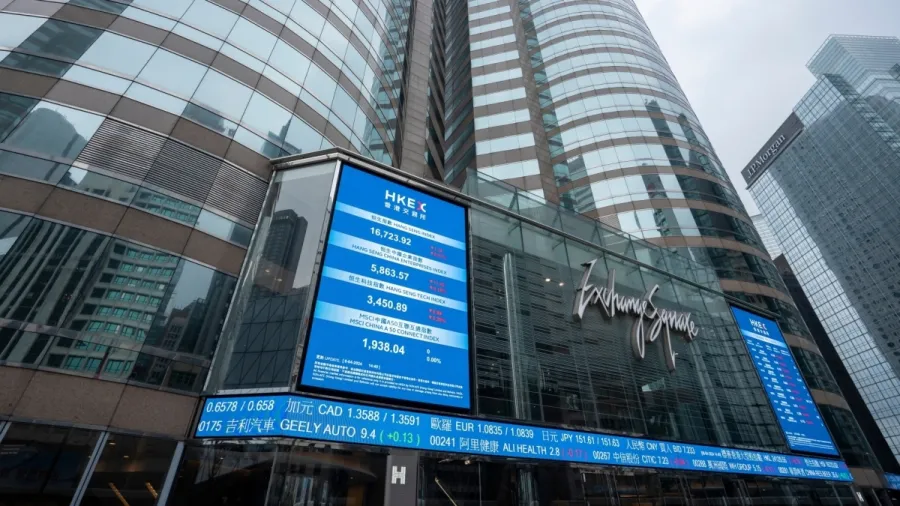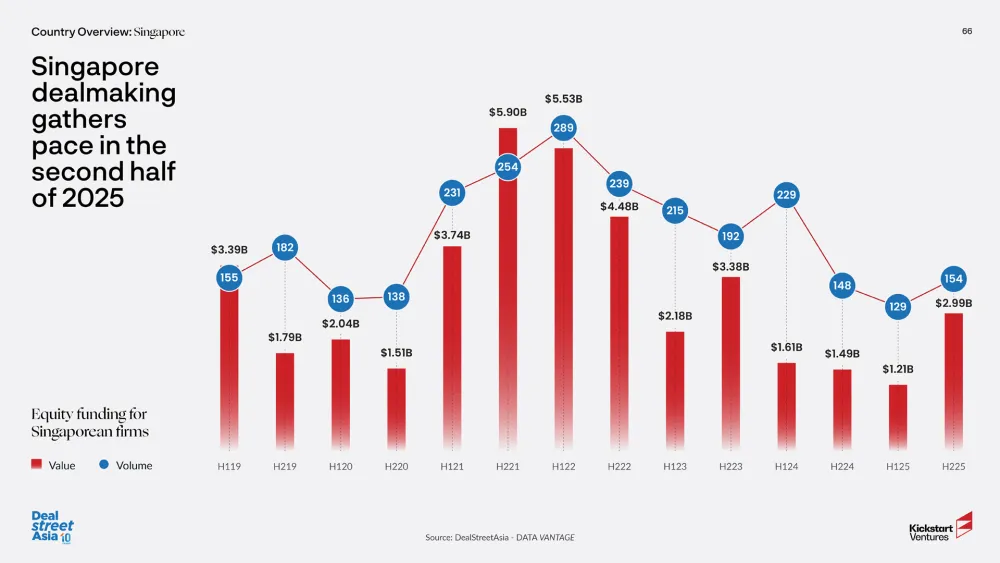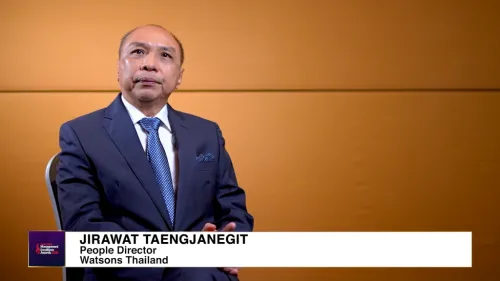
Mainland, Middle East may drive Hong Kong IPO market in 2025
The city’s benchmark stock index is headed for its first annual gain since 2019.
Dealmakers expect the value and volume of Hong Kong’s initial public offerings (IPO) to continue improving in 2025, spurred by secondary listings from the Middle East and Mainland China and in line with an IPO resurgence in Asia after a lean couple of years.
Hong Kong had raised $79.0b from public flotations as of 30 November, exceeding $46b for the full year of 2023, when it posted the lowest IPO funding since 2001, Irene Chu, a partner and head of New Economy and Life Sciences at KPMG Hong Kong, told Hong Kong Business.
IPOs of companies from Mainland China dominated Hong Kong listings in 2024, capturing 96% of proceeds worth $53.7b (US$6.9b) as of 27 September, according to data from the London Stock Exchange Group.
“We expect the trend will continue [to 2025] because there’s still a lot of upcoming mainland companies that are seeking IPO are expanding their businesses to overseas markets, Hong Kong would be an ideal location for them,” Chu said.
Andrew Lam, managing director of Assurance at BDO Ltd., expects IPO funds to hit $80b by year-end.
Among Chinese companies considering to sell shares in Hong Kong are Jiangsu Hengrui Pharmaceuticals Co., Chery Holding Co.’s automotive unit, condiment maker Foshan Haitian Flavouring & Food Co., Chinese express-delivery company SF Holding Co. and online retail platform Dmall, Inc., according to Bloomberg News.
Hong Kong has had 60 deals, fewer than 70 for the full year of 2023, though the average deal size climbed to $1.3b from $700m last year, she pointed out. In 2025, Chu expects homecoming listings from Chinese companies that are already listed overseas.
“We believe this is a good signal about the sentiment among investors,” she said, adding that she expects Hong Kong to return to the top five when it comes to global fundraising.
Hong Kong’s benchmark Hang Seng Index closed at 19,423.61 points on 29 November, gaining 13.9% from its 2023 close of 17,047.39 and is heading for its first annual gain since 2019.
Chu said the Middle East is an emerging market for Hong Kong, whose stock exchange has recognized the Saudi Exchange, Abu Dhabi Securities Exchange, and Dubai Financial Market, paving the way for their companies to apply for a secondary listing in the city.
The Stock Exchange of Hong Kong Ltd. allows firms from these bourses to seek a secondary listing in Hong Kong if they meet a $3b market capitalization and five-year listing requirement with good compliance record. Currently, more than 160 companies qualify, Chu said.
“We [will] hope to see Middle Eastern companies list in Hong Kong, probably not right away, but I think there will be increasing interest, and hopefully we can see a few coming to our market in the coming years,” she added.
Hong Kong would likely attract Middle Eastern companies in banking, financial services, energy, real estate, and infrastructure, Chu said.
She noted that the Middle East has long shown interest in Hong Kong, evident from past investments. Recently, Saudi Arabia’s Capital Market Authority approved two exchange-traded funds tracking Hong Kong equities.
Lam said China’s Belt and Road initiative would likely attract more successful companies from the Middle East and Southeast Asia to Hong Kong given the city’s “free market” and “abundance of capital.”
‘Continued momentum’
Chu said geopolitical tensions and policies under US President-elect Donald Trump could prompt Chinese companies to consider secondary listings closer to home.
Hong Kong would remain a top IPO destination for Greater China enterprises, especially under an eased listing process, Lam said.
“We have exemptions that allow not yet profit making, but high-tech companies and medical companies come to the market. Companies with a good track record already listed in the mainland can also enter the market easier,” he added.
In November, Hong Kong’s bourse said it would streamline the listing procedures to attract more companies. Under the setup, Chu said the regulators would take no more than 40 business days to assess whether there are any material concerns after a maximum two rounds of regulatory comments. If no material regulatory concerns are raised, the IPO process could be completed within six months.
The eased application process “matches quite well with the ambitions of some of the Chinese companies to be more international,” she said.
“One of the reasons to come to Hong Kong for Chinese companies is not just about fundraising, it is also about getting their brands beyond the mainland market and getting the brands known outside, " Chu said. “That helps them set the foundation for regional expansion.”
She added that the “positive signals” from the Hong Kong Stock Exchange continue to spur many companies from the mainland to list.
“That’s why we will see continued momentum in 2025,” Chu said. Out of 91 companies with pending IPO applications, 84 are from Mainland China, she pointed out.
Lam expects Chinese companies in manufacturing, medicine, and information technology to list in Hong Kong. Overall, Chu expects increased activity across banking and financial services, energy, property, infrastructure, consumer, technology, media and telecommunications, and transport and logistics. Several healthcare and life science companies might also go public.
Chu also said she expects companies that specialise in artificial intelligence (AI) to list.
A sign that companies are regaining confidence in Hong Kong’s market is home appliance maker Midea Group Co.’s $35.8b (US$4.6b) IPO in September, the city’s biggest listing since early 2021. That was followed by logistics company SF Holding Co. Ltd.’s $5.8b (US$749.3m) listing two months later, the second-biggest this year. Both are from the mainland.
Lam said both are “quite large” compared with global IPOs, highlighting a trend of “larger market capitalisation” in Hong Kong. “When I say larger market capitalisation candidates, we are talking about candidates with over US1b of funds raised.”
He expects the simplified listing rules for mainland companies in the A-share market, which comprises yuan-denominated stocks listed on the Shanghai and Shenzhen exchanges, to spur Hong Kong IPO activity in 2025.
Chu, for her part, anticipates “another wave” of mainland companies going public in Hong Kong, adding that dozens of companies listed overseas meet the criteria for secondary listing. And whilst many Hong Kong-based companies look beyond home, the Hong Kong bourse remains the most familiar and favourable for them, she added.



















 Advertise
Advertise








